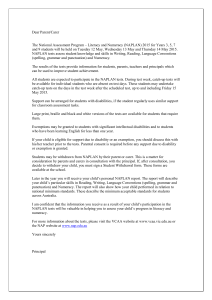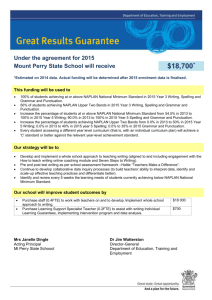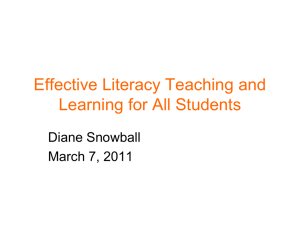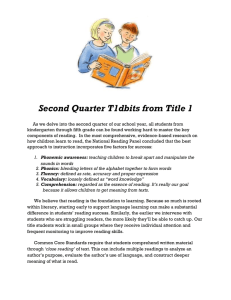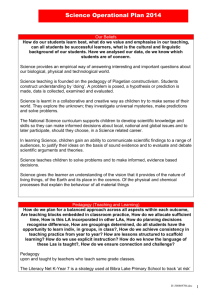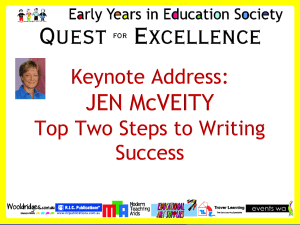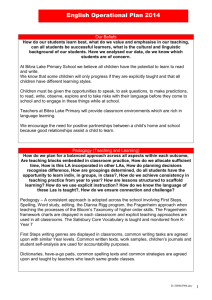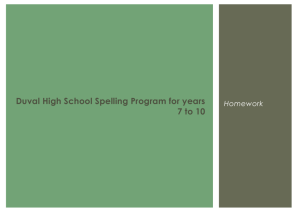NAPLAN Literacy Pack
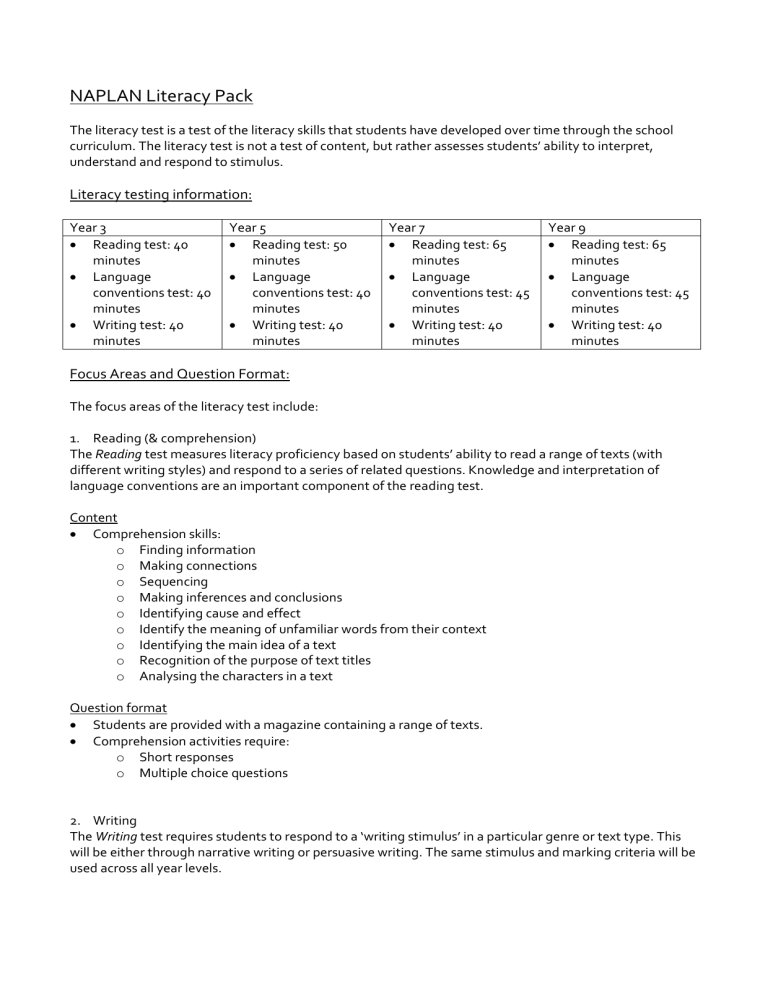
NAPLAN Literacy Pack
The literacy test is a test of the literacy skills that students have developed over time through the school curriculum. The literacy test is not a test of content, but rather assesses students’ ability to interpret, understand and respond to stimulus.
Literacy testing information:
Year 3
Reading test: 40 minutes
Language conventions test: 40
minutes
Writing test: 40 minutes
Year 5
Reading test: 50 minutes
Language conventions test: 40
minutes
Writing test: 40 minutes
Year 7
Reading test: 65 minutes
Language conventions test: 45
minutes
Writing test: 40 minutes
Year 9
Reading test: 65 minutes
Language conventions test: 45
minutes
Writing test: 40 minutes
Focus Areas and Question Format:
The focus areas of the literacy test include:
1.
Reading (& comprehension)
The Reading test measures literacy proficiency based on students’ ability to read a range of texts (with different writing styles) and respond to a series of related questions. Knowledge and interpretation of language conventions are an important component of the reading test.
Content
Comprehension skills: o Finding information o Making connections o Sequencing o Making inferences and conclusions o Identifying cause and effect o Identify the meaning of unfamiliar words from their context o Identifying the main idea of a text o Recognition of the purpose of text titles o Analysing the characters in a text
Question format
Students are provided with a magazine containing a range of texts.
Comprehension activities require: o Short responses o Multiple choice questions
2.
Writing
The Writing test requires students to respond to a ‘writing stimulus’ in a particular genre or text type. This will be either through narrative writing or persuasive writing. The same stimulus and marking criteria will be used across all year levels.
NB: The genre for the NAPLAN 2014 Writing test will not be disclosed in advance of the test – it will be either persuasive or narrative text.
Content
Structure: understanding different text texts – using a structured writing scaffold
Ideas: self-generated ideas based on personal experiences, exposure to literature, myths, legends, global issues etc.
Question format
Extended response: o Persuasive writing structures using a visual/written stimulus o Narrative writing structures using a visual/written stimulus
3.
Language conventions (spelling, grammar and punctuation)
The Language Conventions test assesses spelling, grammar and punctuation, focusing on the use and knowledge of language conventions in different texts.
Content
Punctuation: o Knowledge of the use of capital letters, full stops, question marks, speech marks and commas.
Grammar: o Nouns, verbs, adjectives, conjunctions, pronouns, phrases and contractions
Question format
Multiple-choice and short answer questions: o Identify errors – focus on commonly misspelt and high frequency words, as well as high frequency homophones. o Recognise punctuation conventions in short, long, simple and complex sentences.
PREPARATION
Preparation should include a critical and analytical approach to literacy – focusing on revising fundamental grammar and punctuation principles to ensure students are can interpret and respond to various stimuli.
Students should also have a well-grounded understanding of how to construct a narrative and persuasive text
based on a unseen stimulus.
1.
Practice Papers:
Past NAPLAN literacy tests:
Independent practice NAPLAN tests:
Spellodrome NAPLAN numeracy practice tests:
Student engagement issues? Undeniably, practice papers are a very effective method to familiarize students with the NAPLAN format, however research suggests that students and teachers can find this process to be monotonous and time-consuming (especially when it comes to marking). Keeping students engaged and motivated is key to effective learning, so varying the type of revision you provide your students is imperative.
2.
Other Preparation Methods:
Online Revision - using Spellodrome:
Heighten student engagement levels and lower teacher workload;
Use Spellodrome to set in-class or homework activities targeted at individual strengths and weaknesses.
Spellodrome offers ready-made, automatically marked assessments which target NAPLAN content and reflect the NAPLAN question format.
Spellodrome activity examples:
Create Word List targeting commonly misspelt and high frequency words.
Use Writing Fun to familiarize students with the different writing text types: persuasive writing and narrative writing. Writing Fun also enables students to practice planning and writing these text types.
Online Revision – using Reading Eggspress: (suitable for Years 3, 5 & 7 revision)
Students who have read, written and created a range of texts in a range of classroom activities are well prepared for the NAPLAN Writing Test.
The Reading Eggspress Library hosts over 1,500 e-books featuring a variety of text types – which can be used to expose students to various text structures, assisting students in developing a comprehensive understanding of both persuasive and narrative text types. o This will also introduce students to a variety of different ideas, which may be useful when it comes to writing their own.
The Comprehension Gym helps students to develop the skills to interpret and understand tests through offering a variety of interactive lessons to teach important comprehension strategies.
o In just a few clicks you can assign a particular comprehension activities to your students where they will engage in pre-reading activities, followed by reading the text and answering a set of questions that assess factual, inferential and critical understanding.
Group Learning:
Tackling questions as a class can be an effective way to help students understand the NAPLAN format.
Choose a writing stimulus, and as a class or in groups, have students brainstorm how they would respond to the stimulus using a persuasive writing genre and a narrative writing genre. Here are some ideas to get you started: o
3.
Writing Task Preparation:
Tackling Persuasive Writing – how to address the marking criteria
Tackling Narrative Writing – how to address the marking criteria
TIPS AND TRICKS:
Read and plan each question. Students should be encouraged to read and re-read questions, as well as identify key words to help assist in ensuring they understand exactly what is being asked of them.
Planning written responses. Planning written responses is very important, especially when it comes to the writing task. Students should be encouraged to plan their writing task before they commence writing. Techniques such as brainstorming and creating mind maps are effective methods to help students structure their responses.
